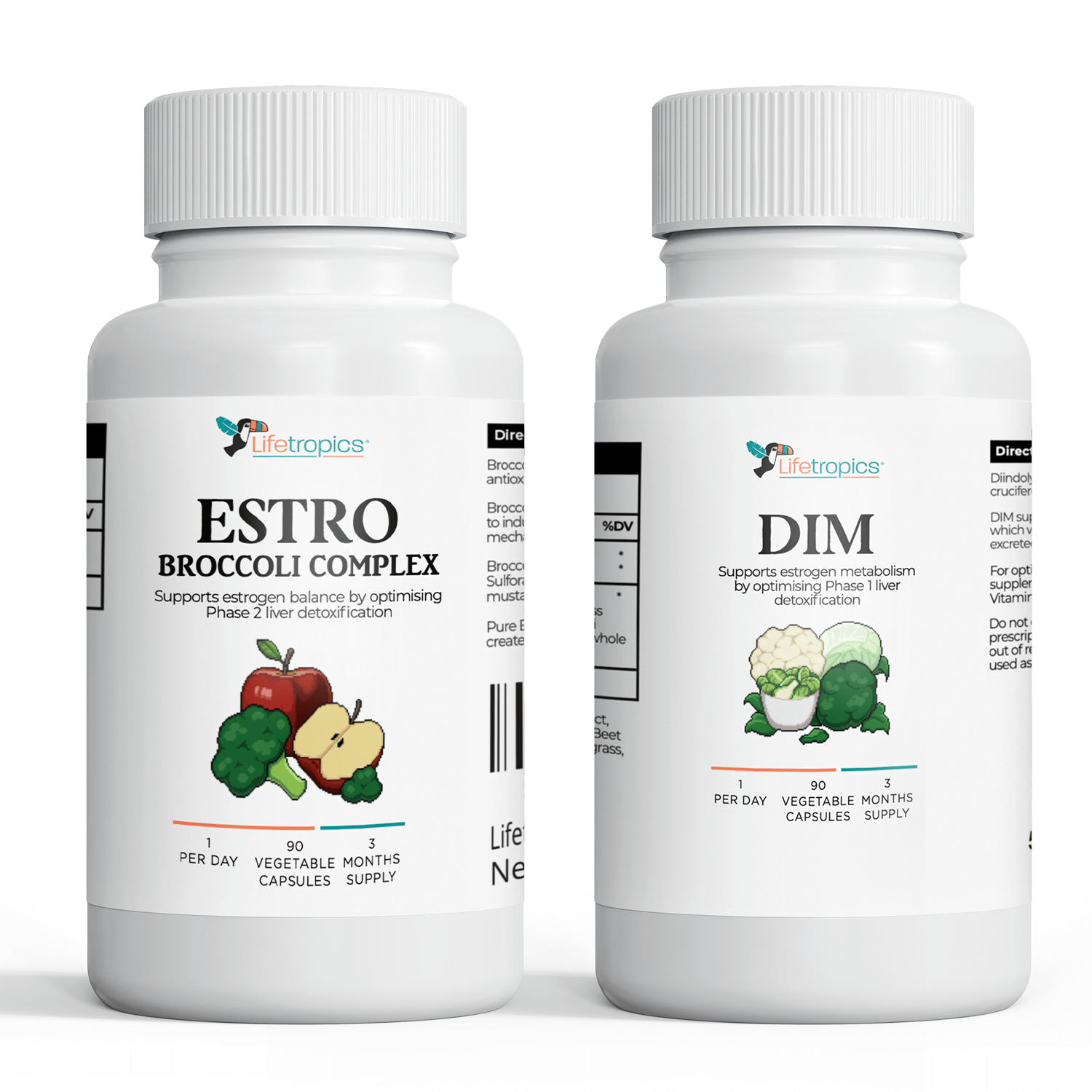Vitamin D, often referred to as the "sunshine vitamin," is a crucial nutrient that impacts various aspects of our health. In this ultimate guide, we're going to explore the benefits of Vitamin D, delve into studies, discover stacking ideas, and learn how much of it to take.
Table of Contents
- Quick Overview of Vitamin D
- What is Vitamin D?
- Benefits of Vitamin D
- Hormone Balance
- Immune Function
- Bone Health
- Mood and Cognitive Function
- Blood Sugar Control
- Studies on Vitamin D
- How to Take Vitamin D (Step-by-Step)
- Combining Vitamin D with Vitamin K2
Quick Overview of Vitamin D
- Benefits: Supports immune function, hormone balance, bone health, and mood.
- Actions: Enhances calcium absorption, regulates the immune system, and influences the production and activity of hormones.
- Who is it good for? Everyone, especially those with limited sun exposure, darker skin tones, or those living in northern latitudes.
- Quality of studies: Extensive research supports the benefits of Vitamin D, with numerous studies highlighting its importance for overall health.
- Time to effect: Several weeks to a few months for noticeable improvements in health markers.
- Stacks with: Vitamin K2, Magnesium, Omega-3 fatty acids.
- Don't stack with: Excessive calcium supplements without monitoring, as it might lead to calcification issues.
- Recommended dose: 2,000 - 5,000 IU per day, depending on individual needs and blood levels.
What is Vitamin D?
Vitamin D is a fat-soluble vitamin that acts more like a hormone in the body. It is produced in the skin in response to sunlight and can also be obtained from certain foods and supplements. Vitamin D exists in two main forms: D2 (ergocalciferol) and D3 (cholecalciferol), with D3 being the more effective form for raising blood levels of Vitamin D.
Benefits of Vitamin D
Hormone Balance
- Regulates Hormone Production: Vitamin D influences the production of several hormones, including estrogen and testosterone, helping maintain hormonal balance.
- Supports Thyroid Function: Adequate Vitamin D levels are essential for optimal thyroid function, which in turn affects the entire endocrine system.
"Vitamin D is essential for the proper regulation of the hormones estrogen and testosterone. Adequate levels help ensure that these hormones are balanced, which is crucial for overall health and well-being."
Immune Function
- Boosts Immune System: Vitamin D helps activate immune cells and enhances the body's defense mechanisms against infections.
- Reduces Inflammation: It plays a role in modulating the immune response, reducing chronic inflammation which is linked to various diseases.
"Vitamin D is a potent immune system modulator. It enhances the pathogen-fighting effects of monocytes and macrophages and decreases inflammation."
Bone Health
- Enhances Calcium Absorption: Vitamin D facilitates the absorption of calcium in the gut, ensuring sufficient levels for bone formation and maintenance.
- Prevents Osteoporosis: By maintaining optimal calcium and phosphate levels, Vitamin D helps prevent bone disorders like osteoporosis.
Mood and Cognitive Function
- Improves Mood: Vitamin D receptors in the brain influence mood regulation, and deficiency has been linked to depression and mood disorders.
- Supports Cognitive Health: Adequate levels of Vitamin D are associated with better cognitive function and a lower risk of neurodegenerative diseases.
Blood Sugar Control
- Regulates Insulin Production: Vitamin D helps regulate insulin production and sensitivity, crucial for maintaining stable blood sugar levels.
- Reduces Risk of Diabetes: Adequate Vitamin D levels are associated with a lower risk of developing type 2 diabetes.
Studies on Vitamin D
- Vitamin D and Hormone Balance: Research shows that Vitamin D can help regulate estrogen levels, potentially reducing the risk of estrogen dominance.
- Vitamin D and Immune Function: Studies have shown that Vitamin D deficiency is linked to an increased risk of infections and autoimmune diseases.
- Vitamin D and Bone Health: Numerous studies highlight the role of Vitamin D in preventing osteoporosis and fractures.
- Vitamin D and Mood: Research indicates that Vitamin D supplementation can improve symptoms of depression.
- Vitamin D and Blood Sugar Control: Studies have found that Vitamin D helps improve insulin sensitivity and regulate blood sugar levels.
How to Take Vitamin D (Step-by-Step)
- Determine Your Needs: Get your blood levels of Vitamin D checked to determine your baseline. The optimal range is typically 30-50 ng/mL.
- Choose the Right Form: Vitamin D3 (cholecalciferol) is the preferred form for supplementation.
- Combine with Vitamin K2: To ensure proper calcium utilization and prevent calcification of arteries, take Vitamin K2 alongside Vitamin D3.
- Consider Your Lifestyle: Sun exposure, diet, and lifestyle factors will influence your Vitamin D needs. Those with limited sun exposure may require higher doses.
- Monitor Your Levels: Regularly check your blood levels to ensure they remain within the optimal range and adjust your dosage as needed.
"For most individuals, a daily dose of 5,000 IU of Vitamin D3 is recommended to maintain optimal health and hormone balance." - Dr. Michael Holick, MD, PhD
Combining Vitamin D with Vitamin K2
Vitamin K2 works synergistically with Vitamin D to direct calcium to the bones where it is needed and away from the arteries where it could cause harm. This combination supports bone health and cardiovascular health, making it an essential part of your daily supplement regimen.
Conclusion
Vitamin D is an essential nutrient that plays a vital role in hormone balance, immune function, bone health, and overall well-being. By understanding its benefits and how to optimize your intake, you can support your health and maintain hormonal balance.
For those interested in boosting their Vitamin D levels, consider our Vitamin D3+K2 supplement, designed to provide the optimal balance of these two crucial vitamins.









Leave a comment (all fields required)